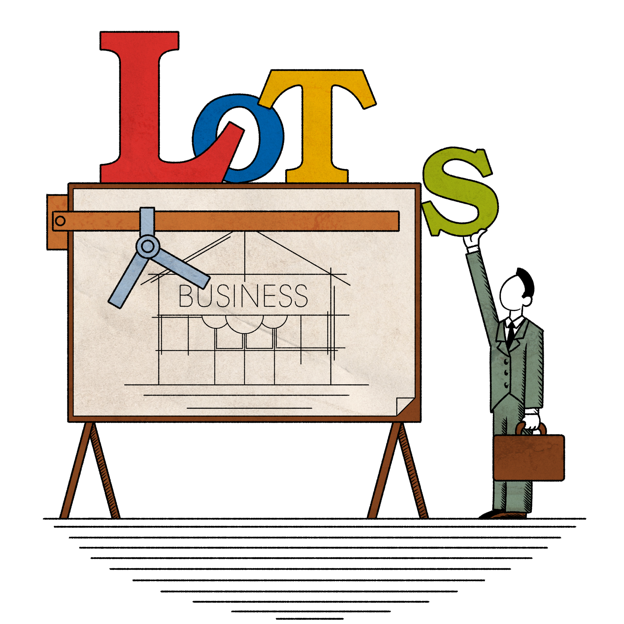Franchise Your Business
What does it take to franchise a business?
You have a franchisable business and you want to take it to the next level. (See Is my Business Franchisable). What does it take to franchise your business? It will take L.O.T.S. (Legal, Operations Manual, Technology and Sales strategy) to franchise. The sections below describe what you will need to have in place if you want to start franchising.
Legal
Franchising is a highly regulated industry (there are federal and state laws that govern the offering, sale of, and franchise relationship). The first stop on your franchise journey is the letter “L”, Legal.
Trademark/Intellectual Property
As a franchisor, one of your primary roles will be to grant a license to franchisees to use your intellectual property. Your “intellectual property” includes things like trademarks and your business system. Your intellectual property is also one of your most valuable assets. Given its importance, you will want to make sure it’s protected. The first step to franchising your business (and a great step for businesses in general) is to file for a federal trademark. The trademark process generally takes at least a year, so the sooner you file your trademark applications the better. You will generally want a minimum of two trademarks, one for the name of the business and one for the logo. You may also have slogans and product names that you want to protect. You should speak with your attorney about whether your other intellectual property is owned correctly (is it owned by the right business entity) and adequately protected (license agreements, employment agreements, etc).
If you already have federally registered trademarks and protection for your intellectual property, great job! You may proceed to the FDD.
FDD
The FDD (Franchise Disclosure Document) is the primary legal document that you will need in order to sell franchises. The FDD describes (or discloses) the franchised business and the franchisor. It also operates both as a legal document and as one of your sales and marketing tools. The franchise agreement is an exhibit to the FDD and is the actual contract that you and the franchisee will sign, agreeing to the specific legal obligations.
For more information, see What is an FDD.
Other legal items
In addition to trademarks and the FDD, you may need to form new legal entities (franchisor entity, holding company, intellectual property entity). You may also need license agreements and other agreements related to your industry.
Operations Manual
The second stop on your franchise journey is the letter “O”, the Operations Manual. You are required to either provide the table of contents and page numbers of your Operations Manual or allow franchise prospects to review the operations manual before they purchase the franchise.
An Operations Manual is primarily an instruction booklet for the franchised business and the authority document of the franchise system standards. The system standards are the standard procedures that a franchisor requires of all franchisees in order to duplicate the customer experience in every location. Unlike the franchise agreement which can only be changed if you and the franchisee agree in writing, the Operations Manual can be changed by you (the franchisor) over the term of the franchise.
Because of this, the franchise agreement will refer to the Operations Manual for the system standards. As your system grows and your system standards change, your Operations Manual can change to reflect the new and updated system standards. The Operations Manual is also a principal tool for training new franchisees.

Technology
Website
You should already have a website that provides information about the products and services of the business. Now you will need a separate website, or a section/page(s) on your current website, that provides information about the franchise opportunity. This will include information on a franchise prospect’s required qualifications, investment information, information on why a prospect should buy your franchise, and contact information for the franchise department. Also, unless your business already has multiple locations, you will need to update your primary products and service website to allow for multiple locations. This could be a single page for each location or a smaller version of the main website for each location.
Point-of-Sale (POS) Software
Does your current POS system allow third party access (big brother features)? Does it produce weekly reports? The jump from operating a business(es) to franchising is a jump from insiders operating your business to third parties (the franchisees) operating your business. You need a “trust but verify” system. You will want a POS that is set up for franchising and allows you (the franchisor) to independently access the franchisee’s POS information. For example, does the franchisee tell you that they will be paying royalties on $10,000 in gross sales from the prior month? If so, you want to have some way to make sure that the franchisee is being honest in their gross sales numbers. Franchise-specific POS software can help with that.
Sales Strategy
Franchising without a sales strategy is like buying a sports car without knowing how to drive stick. You have a great asset but will not be able to leave the driveway. If you don’t sell a franchise then you really aren’t a franchisor. You are a business owner with franchise assets.
There are many sales strategies that may work for your business. You may try to sell the franchise to customers and fans of your business. You may advertise the franchise on online portals. You can hire outsourced franchise sales brokers. You may try franchise trade shows. The key is to have a strategy (and a backup strategy or two as well).
